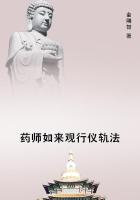[Enter MASTER WALLER, following LYDIA.]
Wal. But thou shalt hear me, gentle Lydia.
Sweet maiden, thou art frightened at thyself!
Thy own perfections 'tis that talk to thee.
Thy beauty rich!--thy richer grace!--thy mind, More rich again than that, though richest each!
Except for these, I had no tongue for thee, Eyes for thee!--ears!--had never followed thee! -Had never loved thee, Lydia! Hear me! - Lydia. Love Should seek its match. No match am I for thee.
Wal. Right! Love should seek its match; and that is, love Or nothing! Station--fortune--find their match In things resembling them. They are not love!
Comes love (that subtle essence, without which Life were but leaden dulness!--weariness!
A plodding trudger on a heavy road!)
Comes it of title-deeds which fools may boast?
Or coffers vilest hands may hold the keys of?
Or that ethereal lamp that lights the eyes To shed the sparkling lustre o'er the face, Gives to the velvet skin its blushing glow, And burns as bright beneath the peasant's roof As roof of palaced prince? Yes, Love should seek Its match--then give my love its match in thine, Its match which in thy gentle breast doth lodge So rich--so earthly, heavenly fair and rich, As monarchs have no thought of on their thrones, Which kingdoms do bear up.
Lydia. Wast thou a monarch, Me wouldst thou make thy queen?
Wal. I would.
Lydia. What! Pass A princess by for me?
Wal. I would.
Lydia. Suppose Thy subjects would prevent thee?
Wal. Then, in spite Of them!
Lydia. Suppose they were too strong for thee?
Wal. Why, then I'd give them up my throne--content With that thou'dst yield me in thy gentle breast.
Lydia. Can subjects do what monarchs do?
Wal. Far more!
Far less!
Lydia. Among those things, where more their power, Is marriage one?
Wal. Yes.
Lydia. And no part of love, You say, is rank or wealth?
Wal. No part of love.
Lydia. Is marriage part of love?
Wal. At times it is, At times is not. Men love and marry--love And marry not.
Lydia. Then have they not the power;
So must they hapless part with those they love.
Wal. Oh, no! not part! How could they love and part?
Lydia. How could they love not part, not free to wed?
Wal. Alone in marriage doth not union lie!
Lydia. Alone where hands are free! O yes--alone!
Love that is love, bestoweth all it can!
It is protection, if 'tis anything, Which nothing in its object leaves exposed Its care can shelter. Love that's free to wed, Not wedding, but profanes the name of love;Which is, on high authority to Earth's, For Heaven did sit approving at its feast, A holy thing! Why make you love to me?
Women whose hearts are free, by nature tender, Their fancies hit by those they are besought by, Do first impressions quickly--deeply take;And, balked in their election, have been known To droop a whole life through! Gain for a maid, A broken heart!--to barter her young love, And find she changed it for a counterfeit!
Wal. If there is truth in man, I love thee! Hear me!
In wedlock, families claim property.
Old notions, which we needs must humour often, Bar us to wed where we are forced to love!
Thou hear'st?
Lydia. I do.
Wal. My family is proud;
Our ancestor, whose arms we bear, did win An earldom by his deeds. 'Tis not enough I please myself! I must please others, who Desert in wealth and station only see.
Thou hear'st?
Lydia. I do.
Wal. I cannot marry thee, And must I lose thee? Do not turn away!
Without the altar I can honour thee!
Can cherish thee, nor swear it to the priest;For more than life I love thee!
Lydia. Say thou hatest me, And I'll believe thee! Wherein differs love From hate, to do the work of hate--destroy?
Thy ancestor won title to his deeds!
Was one of them, to teach an honest maid The deed of sin--first steal her love, and then Her virtue? If thy family is proud, Mine, sir, is worthy! if we are poor, the lack Of riches, sir, is not the lack of shame, That I should act a part, would raise a blush, Nor fear to burn an honest brother's cheek!
Thou wouldest share a throne with me! Thou wouldst rob me of A throne!--reduce me from dominion to Base vassalage!--pull off my crown for me, And give my forehead in its place a brand!
You have insulted me. To shew you, sir, The heart you make so light of, you are beloved -But she that tells you so, tells you beside She ne'er beholds you more!
[Goes out.]
Wal. Stay, Lydia!--No!
'Tis vain! She is in virtue resolute, As she is bland and tender in affection.
She is a miracle, beholding which Wonder doth grow on wonder! What a maid!
No mood but doth become her--yea, adorn her.
She turns unsightly anger into beauty!
Sour scorn grows sweetness, touching her sweet lips!
And indignation, lighting on her brow, Transforms to brightness as the cloud to gold That overhangs the sun! I love her! Ay!
And all the throes of serious passion feel At thought of losing her!--so my light love, Which but her person did at first affect, Her soul has metamorphosed--made a thing Of solid thoughts and wishes--I must have her!
[Enter WIDOW GREEN, unnoticed SIR WALLER, who continues abstracted.]
W. Green. What! Master Waller, and contemplative Presumptive proof of love! Of me he thinks!
Revolves the point "to be or not to be!"
"To be!" by all the triumphs of my sex!
There was a sigh! My life upon't, that sigh, If construed, would translate "Dear Widow Green!"Wal. Enchanting woman!
W. Green. That is I!--most deep Abstraction, sure concomitant of love.
Now, could I see his busy fancy's painting, How should I blush to gaze upon myself.
Wal. The matchless form of woman! The choice calling Of the aspiring artist, whose ambition Robs Nature to outdo her--the perfections Of her rare various workmanship combines To aggrandise his art at Nature's cost, And make a paragon!
W. Green. Gods! how he draws me!
Soon as he sees me, at my feet he falls! - Good Master Waller!
Wal. Ha! The Widow Green!
W. Green. He is confounded! So am I. O dear!
How catching is emotion. He can't speak!
O beautiful confusion! Amiable Excess of modesty with passion struggling!
Now comes he to declare himself, but wants The courage. I must help him.--Master Waller!















